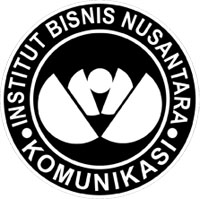Pengaruh Kualitas Pelayanan Customer Service KSPPS BMT Masjid Al-Azhar Terhadap Kepuasan Nasabah di Jakarta
Abstract
Tujuan dari penelitian ini adalah untuk mengetahui adakah pengaruh kualitas pelayanan customer service KSPPS BMT Masjid Al-Azhar terhadap kepuasan nasabah di Jakarta. Penelitian ini menggunakan Behaviorism Theory dari John B. Watson sebagai Grand Theory dan Applied Theory yang digunakan berdasarkan pernyataan dari Bowen & Chen, 2001; Cronin & Taylor, 1992; Parasuraman, Zeithaml, & Berry, 1985). Penelitian ini menggunakan metode kuantitatif, dengan jumlah sampel sebesar 99 orang nasabah KSPPS BMT Masjid Al-Azhar di Jakarta berdasarkan Rumus Slovin dengan presisi 10%. Teknik pengambilan sampel menggunakan nonprobability sampling dengan pendekatan accidental sampling. Hasil penelitian menunjukkan bahwa kualitas pelayanan berpengaruh terhadap kepuasan nasabah berdasarkan hasil uji hipotesis dengan membandingkan nilai t-hitung dengan t-tabel, yaitu nilai t-hitung (22.913) > t-tabel (1,290161). Di sisi lain, hail uji korelasi menunjukkan bahwa rhitung > rtabel = 0,919 > 0.1975. Hasil analisis tersebut menjelaskan bahwa Kualitas Pelayanan dan Kepuasan Nasabah menunjukkan adanya hubungan yang sangat kuat. Adapun nilai koefisien regresi sebesar 0.805, berarti setiap kali ada aktivitas kualitas pelayanan, maka kepuasan pelanggan akan meningkat sebesar 0.805. Nilai uji determinasi sebesar 84.4%, yang berarti bahwa kualitas pelayanan memiliki kontribusi sebesar 84.4% terhadap kepuasan nasabah dan sisanya 15.6% dipengaruhi oleh faktor lain.
The purpose of the study is to get information is there any impact of service quality on KSPPS BMT Masjid Al-Azhar on customer satisfaction. The study uses Behaviorism Theory by John B. Watson, as Grand Theory and Applied Theory by Bowen & Chen, 2001; Cronin & Taylor, 1992; Parasuraman, Zeithaml, & Berry, 1985). The study uses quantitative method and based on Slovin Formula with 10% precision, the study has 99 samples, all the samples are the customers of KSPPS BMT Masjid Al-Azhar in Jakarta. This study uses nonprobability sampling with accidental sampling’s approach. The results show that service quality have an impact on customer satisfaction based on the results of hypothesis testing that compare between t-value with t-table. The hypothesis testing shows that t-value (22.913) > t-table (1,290161). Furthermore, the correlation test result is 0,919 > 0.1975, can be explained that Service Quality and Customer Satisfaction have very strong correlation. The regression coefficient result is 0.805, has the meaning that every one time of service quality activity, so the customer satisfaction score will increase 0.805 point. From the determination test, has 84.4%, and the meaning is service quality of customer service give 84.4% contribution toward customer satisfaction and the rests, 15.6% is influenced by others factors.







